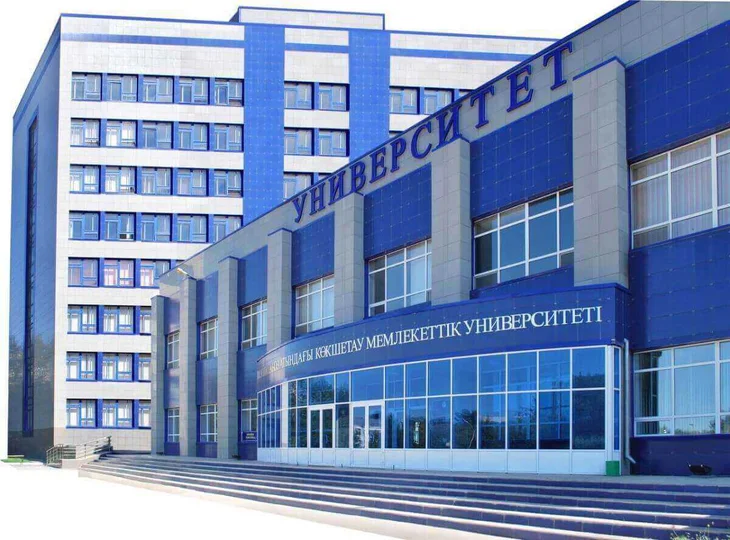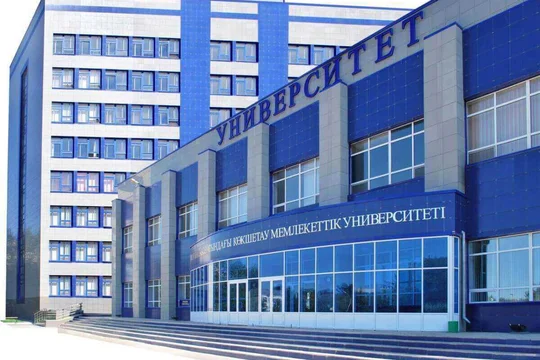Mathematics - Computer Science

Educational program code
6В01508
Language of instruction
Kazakh, Russian, English
Learning level
Undergraduate
Duration of study
4 year
Specialized subjects
Mathemathics
Physics
Objectives of the educational program
- Подготовка полиязычных педагогических кадров по математике и информатике для образовательных учреждений, в том числе для малокомплектных школ северного региона Казахстана в соответствии с концепцией обновленного содержания образования
- Формирование у будущих учителей казахстанского и гражданского патриотизма, любви к национально-культурным богатствам и традициям Казахстана, уважение к закону, нормам демократии, развитие социальной ответственности; навыков поликультурной и полилингвистической кооперации
- Развитие способностей к самосовершенствованию личности будущего учителя и навыков социализации в профессиональной среде для обучения в течение всей жизни
- Academic writing
- Programming languages
- Education management and digitalization
- Geometry I
- Inclusive education
- Computer graphics (CorelDRAW, AutoCAD)
- Criteria assessment technologies
- Mathematical analysis I
- Methods of teaching mathematics
- Theory and methodology of teaching mathematics
- Mathematical analysis II
- Physiology of school development
- Methods of teaching computer science
- Pedagogy
- Introduction to the teaching profession
- Theory and methodology of educational work
- JavaScript
- Web technologies
- Algebra and Number Theory I
- Algebra and Number Theory II
- Geometry II
- User interface design
- Differential equations
- Additional questions of school geometry
- Project activities and methods of scientific and technical information search
- Computer architecture and computer networks
- Fundamentals of computer system design
- Computer video editing and animation
- Integral calculus of functions of many variables. Field theory.
- Ordinary differential equations
- Workshop on solving math problems 2
- Methodological foundations of solving problems of mathematics 2
- Methodological foundations of solving problems of mathematics I
- Workshop on solving mathematical problems I
- Mathematical analysis III
- Interdisciplinary connections in teaching mathematics
- Non-standard problems of mathematics
- Object-oriented programming (Borland C++Builder)
- Object-oriented programming (Visual C#)
- Digital image processing
- Basics of programming in C++
- Fundamentals of robotics
- Basics of C programming#
- Number theory
- Fundamentals of Digital Electronics
- Nonstandard equations and inequalities
- Linear algebra and elements of set theory
- Probability theory and mathematical statistics
- Elements of probability theory, combinatorics and statistics
- Creation of an electronic educational resource
Learning outcomes and competencies
- Воспроизводить знания в области экономики и права, основ антикоррупционной деятельности, экологии и основ безопасности жизнедеятельности, навыков предпринимательства, лидерства, восприимчивости инноваций; быть толерантным к традициям, культуре народов мира, формировать общечеловеческие и социально-личностные ценности; воспитывать патриотизм, дружбу народов Республики Казахстан, религиозную терпимость;
- Применять языки для академических, профессиональных целей и межкультурной коммуникации для реализации политики трехъязычного образования в области математики и научных исследованиях;
- Владеть классическими положениями дидактики в интеграции с теоретическими концепциями области математики и информатики; формировать функциональную грамотность, развивать критическое мышление;
- Планировать и структурировать содержание обучения с учетом новых подходов; использовать на практике технологию критериального оценивания учебных достижений (СОЧ, СОР, ФО);
- Применять современные подходы, методы, технологии организации учебного процесса в преподавании и обучении математики и информатики, направленные на развитие личности;
- Разрабатывать дидактические материалы, электронные образовательные ресурсы, для реализации инклюзивного образования, интегрированного обучения математике и информатике;
- Использовать информационные и телекоммуникационные технологии в профессиональной деятельности;
- Владеть навыками использования методов и приемов решения олимпиадных задач по математике и информатике, предусмотренные школьной программой;
- Проектировать и реализовывать учебно-воспитательную работу в инклюзивной образовательной среде с учетом возрастных анатомо-физиологических особенностей школьников для создания уникальных стратегий воспитания в соответствии с концепцией образования РК
- Владеть системой представлений о роли педагогической профессии в современном обществе в условиях обновленного образования; рефлексировать над собственной практикой с целью саморегуляции педагогической деятельности и уметь проектировать педагогическое общение.
